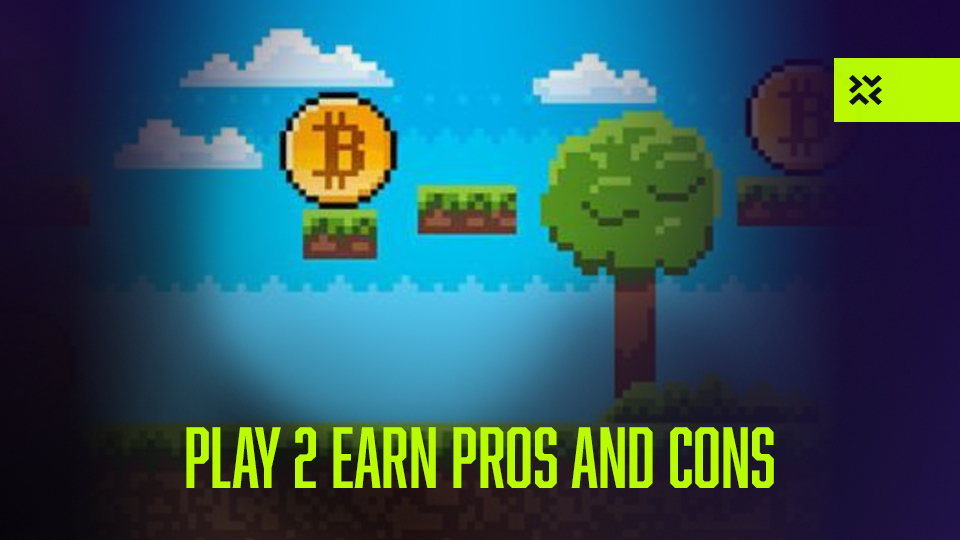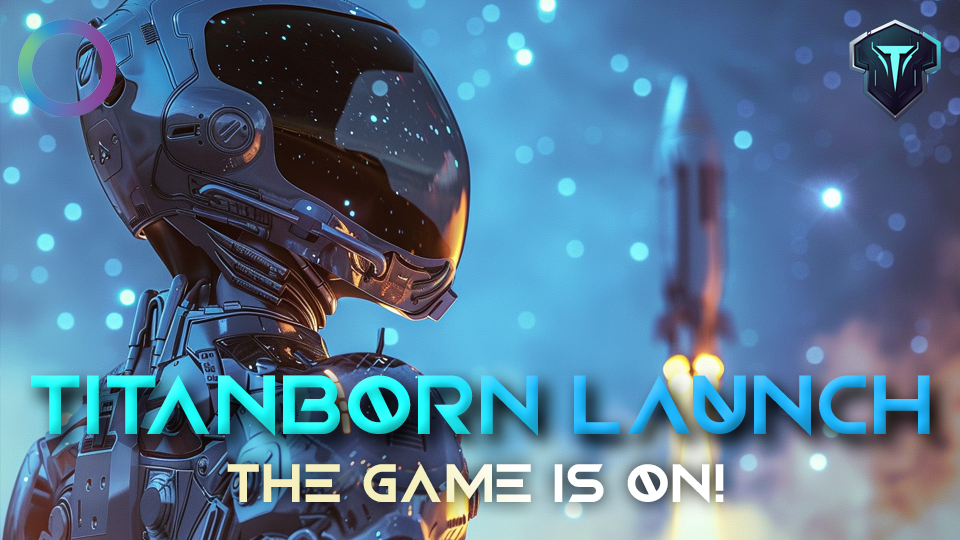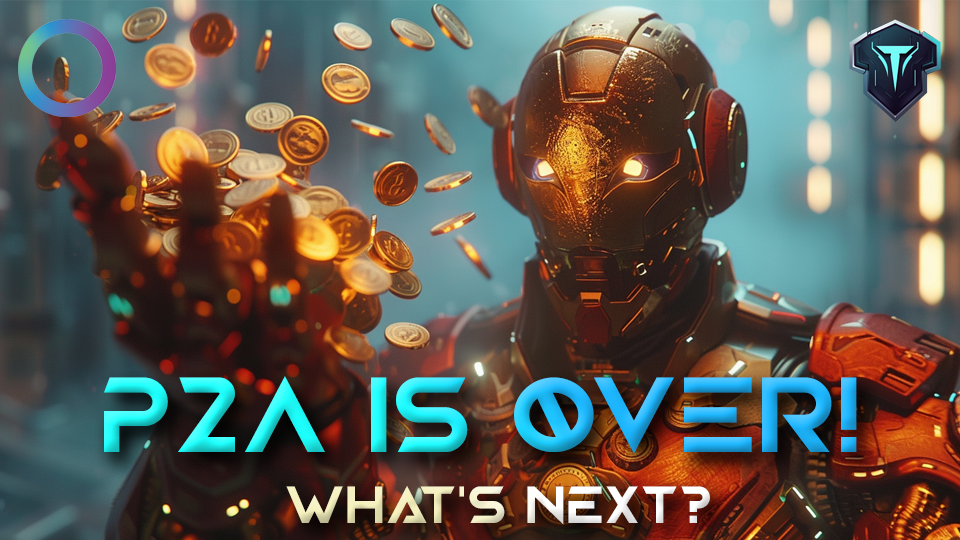
Introduction
Gamers have traditionally used video games as entertainment and a medium for experiential art and storytelling. However, it is difficult for most players to turn their time spent on a single game into real-life earnings. Play-to-earn (P2E) games offer an alternative, allowing players to earn real money from their gameplay.
In this article, we’ll cover:
- What are play-to-earn games?
- How do play-to-earn games work?
- Advantages of play-to-earn games
- Disadvantages of play-to-earn games
- How play-and-earn games solve the play-to-earn problem
What are play-to-earn games?
P2E games, also known as crypto games, use blockchain technology for players to earn money through cryptocurrency using tokens, such as non-fungible tokens (NFTs). These NFTs can then be traded or sold for profit, just like any other NFT.
In addition to being able to earn real value from in-game items, P2E games also have a decentralized nature, meaning that the ongoing development of the game is often done collaboratively with player feedback taken into account through online communities, such as Discord or Twitter. This allows players to have a direct impact on the game’s economy simply by playing consistently.
Did you know? Although many consider P2E a purely crypto concept, these games existed long before the blockchain takeover. The earliest examples came from MMO RPGs with player-to-player transactions. There were several pioneers, such as Ragnarok Online, World of Warcraft, Perfect World, and more. However, the arrival of crypto games placed more emphasis on earning money easier.
How do play-to-earn games work?
P2E games can be divided into two main categories: games centered on collection and creation. Collection-based P2E games, such as Gods Unchained, focus on building and optimizing a collection of NFTs. Creation-based P2E games, such as The Sandbox, allow players to create and share their own content and then capitalize on it.
Advantages of play-to-earn games
P2E games offer several advantages, on top of those already provided by traditional video games.
First, they benefit both gamers and developers. In traditional games, only the developers earn, with the players having to pay to play. However, P2E provides an opportunity for everyone to profit from participating in the ecosystem. On the consumer side, gamers earn real rewards, such as cryptocurrency, by playing.
Second, P2E games can also build community by fostering interactions between players. This creates strong bonds and a sense of community around the game.
Disadvantages of play-to-earn games
One potential downside of P2E games is that the focus on earning may take away from enjoying the game. Developers may prioritize an unsustainable economic model over the elements that make the game fun, leading to a less enjoyable experience for players. In fact, a general trend in this market has been a neglect of engaging gameplay, further contributing to projects with short lifespans.
For example, this happened with the famous Axie Infinity, which depended on an economic unsustainable structure that required new players to continually buy into their token Smooth Love Potion (SLP), much like a Ponzi scheme.
Another issue with P2E games is the high cost of entry. Some games require players to spend significant amounts of money upfront to purchase items necessary to play the game. In Axie’s case, players had to invest in characters before playing and earning money. This expense may discourage exploring P2E games.
Additionally, there is the risk of losing money. Players may need to spend long periods of time before receiving significant monetary returns. It is possible to spend weeks or months to recover the initial investment required to access the game. There is also the potential for losses due to the volatility of cryptocurrency and NFT prices, which can fluctuate rapidly.
Finally, the lack of defined structure within the blockchain technology used in play-to-earn games can create challenges. There are scalability issues, upfront costs, network infrastructure concerns, and the lack of mainstream accessibility to consider. It is important for players to understand these potential issues before starting.
How play-and-earn games solve the play-to-earn problem
In response to the issues faced by play-to-earn games, some developers, such as our team at Revenant, are now focusing on creating play-and-earn games.
Play-and-earn games prioritize the player’s enjoyment and experience over earning potential. This means developers focus on creating a fun and immersive gameplay experience, with earning opportunities as an added bonus.
This is the exact philosophy behind Battle of Olympus, our upcoming arcade fighting game. Battle of Olympus is like Tekken, but with Greek gods. To learn more about this revolutionary blockchain game, follow us on Twitter for the latest game development updates.

Play-and-earn games often have lower barriers to entry, making them more accessible to a wider range of players. This means players do not need to spend significant amounts of money upfront to access the game and start playing.
Additionally, play-and-earn games focus on creating a more well-rounded, enjoyable gameplay experience, which can be more engaging and rewarding for players. This means players are more likely to continue playing the game, which can lead to more sustained earning potential.
Finally, play-and-earn games typically do not rely on the volatility of cryptocurrency, meaning players are less likely to see the value of their in-game earnings decrease significantly over time. This can provide players with more stability and security when it comes to earning from their gameplay.
Overall, play-and-earn games offer a more enjoyable, accessible way for players to earn from their gameplay, while still providing a fun, immersive experience reminiscent of traditional games.
Conclusion
Overall, play-to-earn games have the potential to provide players with a fun and immersive gaming experience, while also offering real-world benefits.
However, the focus on earning may detract from the game experience, coupled with the high cost of entry can be prohibitive for some players. Additionally, the risk of losing money in play-to-earn games is a real concern.
That said, the emergence of play-and-earn games may provide a more sustainable and engaging solution to these issues. These games prioritize gameplay and player experience, with earnings being a bonus to a well-made game, which should make them more attractive to traditional gamers.
As the blockchain gaming industry continues to evolve, it will be interesting to see how play-and-earn games impact the future of crypto games. At Revenant, we will continue to follow this philosophy and improve upon it to ensure our community has a game they’ll want to play for years to come.





